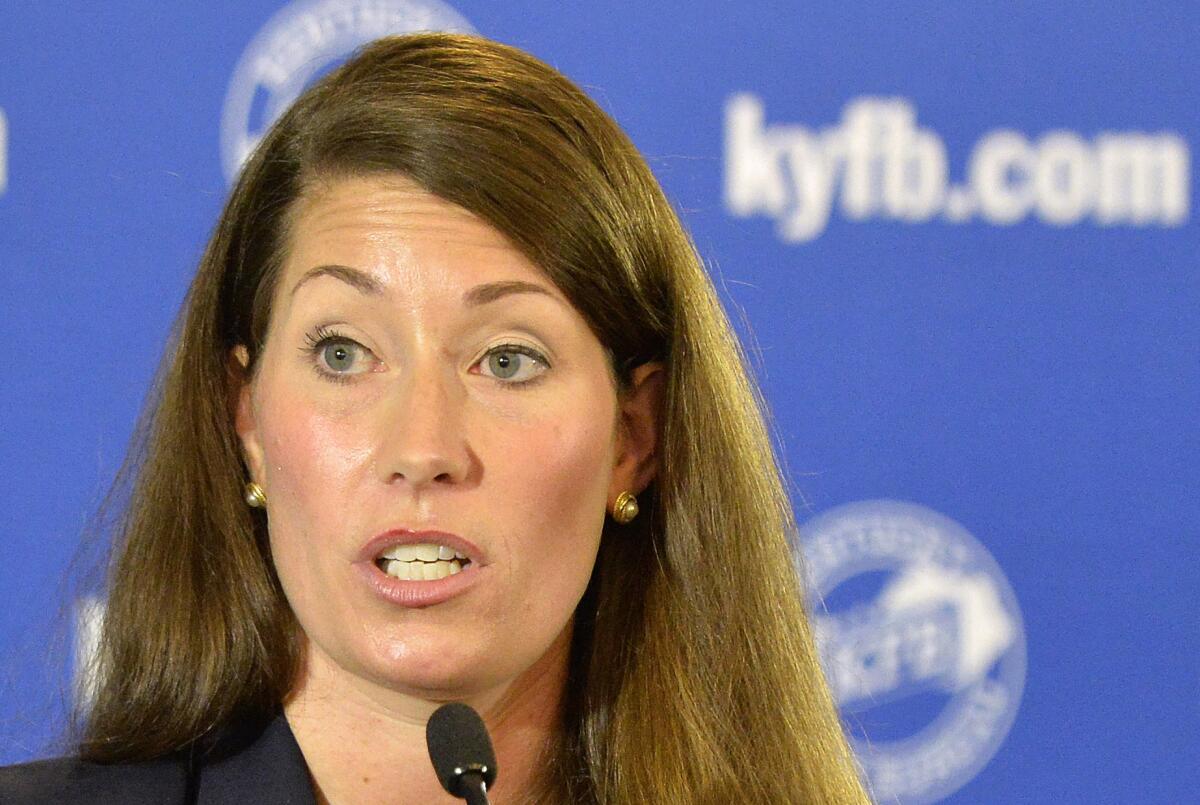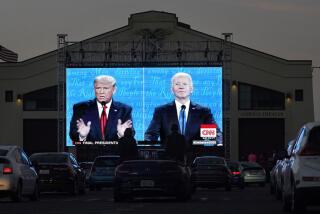Column: Why so many voters care so little about the midterm elections

The looming midterm elections, which will decide whether the U.S. Senate is run by Democrats or Republicans, has been called “the Seinfeld election,” because so much of the campaign seems to be about nothing.
But that’s not quite right. The problem is that the campaign has been about too many things. In Colorado, Senate candidates are bickering about birth control, abortion rights and whether “personhood” begins at birth. (As a Denver Post writer put it, “If Colorado’s U.S. Senate race were a movie, the set would be a gynecologist’s office.”) In Georgia, Senate candidates are in a “did so/did not” squabble over whether the Democratic candidate, in league with former President George H.W. Bush, sent money to terrorists. In Iowa, the divide between the parties has included castrating hogs and dealing with stray chickens, issues not covered in either party’s official platform.
Of course, candidates from the two parties are also divided on the economy — especially on how to address the fact that most Americans’ incomes aren’t growing, even though we’re in the sixth year of a recovery.
What do the two parties propose to do about that? Republicans are blaming President Obama, as they have for the last six years, and calling for cuts in government spending. Democrats are relying on familiar prescriptions too, calling for a higher minimum wage and warning that (in the words of Nancy Pelosi) “civilization as we know it would be in jeopardy” if Mitch McConnell became majority leader in the Senate.
But neither side has spent much time or energy laying out an ambitious and positive national agenda — like, for example, the “Contract With America” Newt Gingrich turned into the blueprint for a GOP House majority in 1994, exactly 20 years ago. Instead, both sides are playing small ball and honoring the adage that all politics is local.
It’s easy to see why Democrats are campaigning that way: They’re stuck on defense. The Senate seats they need to win to keep the Senate are mostly in states that voted for Mitt Romney in 2012: Arkansas, Louisiana, North Carolina, Alaska. For those candidates, wrapping themselves in a national Democratic agenda would be electoral suicide. And there’s certainly nothing the president can do to help them. One frequent refrain of Alison Lundergan Grimes, the Kentucky Democrat who’s trying to unseat McConnell, is “I am not Barack Obama.”
For Republicans, the story is more complicated. They’re energized, but divided between tea party conservatives and establishment conservatives. And they don’t have a single national leader who can carry their message.
Some Republicans are worried that their party is missing an opportunity. This year — the sixth year of an increasingly unpopular Democratic president — was supposed to be their chance to sweep the country with a conservative “wave” — but there’s no clear sign that such a wave is building.
“The way to win is to tell voters what they’ll get with a Republican majority,” said David Winston, an advisor to House Speaker John A. Boehner (R-Ohio). “That’s what worked in 1994, and it worked again in 2010.”
Winston thinks part of the problem is that Republican strategists are sticking to a more cautious message, advising candidates “Don’t tell voters what you would do. That only gives Democrats something to shoot at.”
Peggy Noonan, a former speechwriter for Ronald Reagan, warned in the Wall Street Journal recently, “If Republicans can’t make, catch and ride a wave in an environment like this, they’ve gone from being the stupid party to the stupid loser party.
“Republicans need to say what they’re for,” Noonan wrote. Otherwise, she warned, “they will not be able to claim any mandate for anything.”
The problem for the GOP, said pollster Andrew Kohut of the Pew Research Center, is that while many voters have lost confidence in Obama and his party, “they dislike the Republican Party even more than they dislike the Democrats.”
When the Wall Street Journal/NBC News poll asked voters if they intended their choices to send a message to Washington, only 13% said they would be voting in support of Republican policies. An even smaller number said they would be voting in favor of Democratic ideas. The largest group of all, 42%, said they didn’t have a bigger message in mind at all.
That suggests that except for a few high-intensity states, we’re in for an apathetic election with low voter turnout. That will help Republicans win more close races, and make it more likely that they pick up the six additional Senate seats they need to gain a majority.
If that happens, GOP leaders will claim that the voters have given them a mandate — but without a true conservative surge, it won’t be much of a mandate at all.
So are we having a “Seinfeld” election? No. But the November ballot does bring to mind the title of another television comedy: “Curb Your Enthusiasm.”
Twitter: @DoyleMcManus
More to Read
A cure for the common opinion
Get thought-provoking perspectives with our weekly newsletter.
You may occasionally receive promotional content from the Los Angeles Times.











